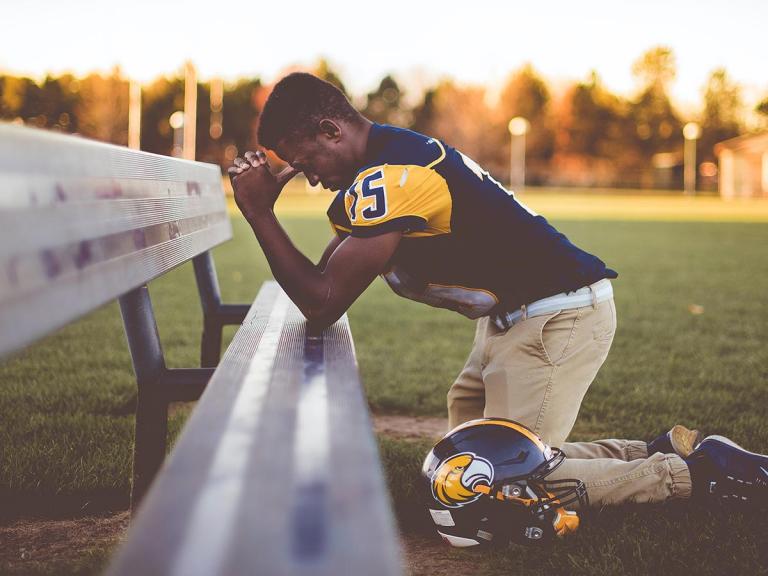
After the Supreme Court sided with Joseph Kennedy, a football coach fired for publicly praying on the football field during his own time, this past June, a new survey from the National Opinion Research Center (NORC) at the University of Chicago has shown most Americans support the decision, with 54% approving overall of the court’s decision and 22% disapproving. According to the survey, 6 out of 10 Americans “think a coach leading a team in prayer, a player leading a team in prayer, or a coach praying on the field without asking the team to join in should all be allowed at public high school sporting events.” One of the reasons argued against Kennedy being allowed to pray openly on the field was the belief that it would make other students feel pressured into joining the prayer, however only 27% overall of the respondents believed this might be a possibility. Only about 26% of respondents overall felt that it might make students feel less welcome participating in high school sporting events.
The trend continued when applied to professional sports. Only 18% of respondents “strongly/somewhat oppose” the playing of a religious song like “God Bless America” before a game. 50% approved of professional players praying on the field while only 9% strongly disapproved, whereas only 30% approved of kneeling during the National anthem with 37% disapproving. Overall, differences were most notable based on political persuasion, with Democrats and Independents being more opposed to religious practices in public schools than Republicans. Nearly 30% of respondents stated they believed prayer could help determine the winner of a game, with 56% of those respondents identifying as born-again Protestant. Only 21% of born-again Protestants believed that superstitions and rituals could help turn the outcome in a team’s favor.
The battle over the role of prayer and faith-based activities in public school has raged since 1962, when SCOTUS struck down school-sponsored prayer in public schools in Engel v. Vitale. The ruling was 6-1 in agreement that a school sponsored non-denominational prayer along with the Pledge of Allegiance violated the Establishment Clause of the First Amendment, despite the school’s allowance for students to absent themselves from the activity if they found it objectionable. The one dissenter, Justice Stewart, in his dissent, wrote that the Establishment Clause was solely to prohibit the establishment of a state-sponsored church, not to prohibit all types of government involvement and religion. What exactly is meant by “Congress shall make no law respecting an establishment of religion, or prohibiting the free exercise thereof…” continues to be source of controversy and with the Kennedy ruling it seems to only be continuing.


